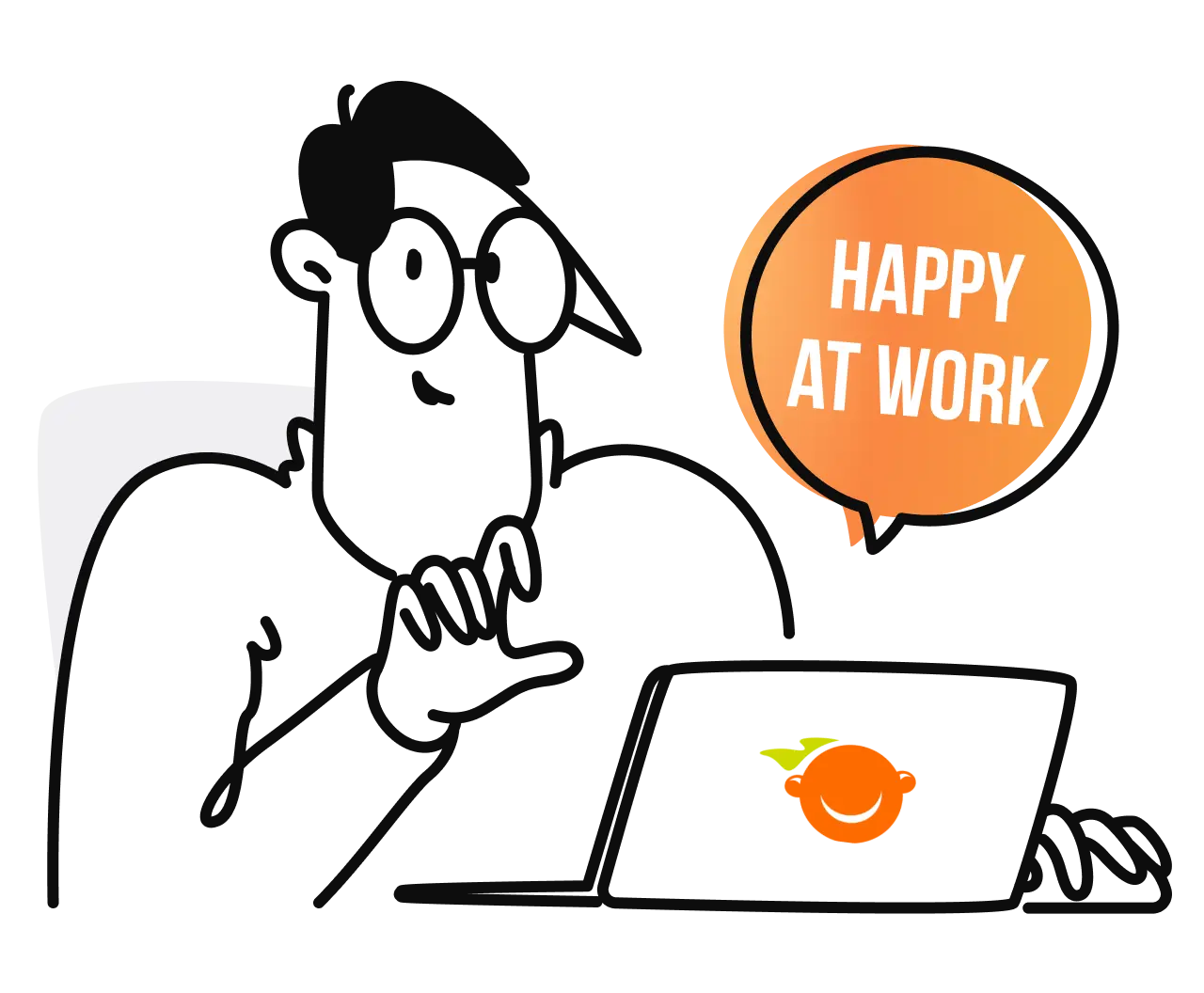The significance of soft skills in shaping effective leadership is increasingly recognized across the corporate world. James Lawrence, the Cofounder and CEO of Happy Companies, shared his expert insights in a recent interview with Communication Intelligence magazine, highlighting the critical role these skills play in driving leadership and organizational success.
In this summary, we're spotlighting key highlights from James Lawrence's interview, CEO Struggle: Bridging Leadership’s Soft Skills Gap, emphasizing the growing acknowledgment of soft skills' significance in the corporate world and their impact on leadership effectiveness and organizational success.
The Importance of Emotional Intelligence
James Lawrence has noticed that a lot of companies still don't fully use emotional intelligence (EQ), often thinking it's all about feelings and not about the bottom line. But, this view misses the big picture. Despite the common misconception that EQ focuses too much on feelings at the expense of process and profit, research from the Center for Creative Leadership highlights its critical role. A staggering 75% of career derailments stem from deficiencies in emotional competencies, such as interpersonal problems and inability to adapt to change.
Lawrence emphasizes that this highlights a big opportunity for companies. Emotional skills like knowing how to deal with your own and others' feelings, being aware of what's happening in a group, and being able to keep relationships strong are crucial. They're not just “nice to have”; they're what make a leader truly effective.

Moreover, he points out that understanding and using EQ can actually help a business do better, not worse. It's key for clear communication, bouncing back from setbacks, and getting everyone through times of change. Leaders who are good at this stuff can create teams that work well together, come up with new ideas, and push the company forward.
Lawrence is really making the case that paying attention to emotional intelligence isn’t just about making the workplace nicer—it’s a smart business move. It leads to better teamwork, more innovation, and, ultimately, better financial results. So, it's time for businesses to see developing EQ in their leaders not just as a good thing to do, but as essential for staying ahead in today’s world.
The Business Case for Soft Skills
Companies that really get emotional intelligence right, where people understand and manage their feelings well, tend to knock it out of the park. James Lawrence points out that these places are not just a little bit better off—they're actually 22% more profitable. That's a big deal. He's saying that being able to put yourself in someone else’s shoes, knowing your own strengths and weaknesses, and being good at dealing with people isn't just nice leadership qualities. They're must-haves.

In these high-flying companies, leaders know how to handle their own emotions and help others manage theirs too. This creates a kind of trust that's crucial for teamwork, especially when things get tough or complicated, which is pretty much all the time in today’s work world.
Lawrence makes it clear that this isn't about being soft—it's about being smart. In a workplace where people feel understood and valued, where they trust their leaders and each other, things just work better. Projects move faster, ideas flow more freely, and people are more willing to go the extra mile. All this adds up to not just happier employees but also to better business results. So, focusing on emotional intelligence isn’t just about creating a nice place to work; it’s a key part of doing well in business today.
Soft Skills: A Non-Optional Competency
Despite what some might think, soft skills—like being able to work well with others, solve problems creatively, and lead a team—are absolutely essential. They're not just a nice extra; they're key to making a business run smoothly and come up with new ideas. James Lawrence has seen a big change in how companies view these skills. They're starting to see that soft skills are just as important as the technical or "hard" skills. This is because soft skills help everyone get along better, cut down on misunderstandings and disagreements, and make it easier for people to work together effectively.
Lawrence points out that when people know how to communicate well, listen to each other, and understand each other's emotions, the whole workplace benefits. It's easier to come up with new solutions to problems when everyone feels comfortable sharing their ideas. Plus, teams with strong soft skills are often more motivated and committed because they feel understood and valued. This doesn't just make for a happier place to work; it also drives innovation and productivity.

In essence, Lawrence is saying that soft skills are the glue that holds a team together. They turn a group of individuals into a cohesive unit that can tackle any challenge. Recognizing the value of these skills is a sign of a company that's looking to the future, ready to adapt and thrive in an ever-changing business landscape. It's clear that for businesses aiming for success, developing these soft skills across their teams is not just a good idea—it's a must-do.
Barriers to Implementing EQ
James Lawrence opens up about his own journey as a leader, sharing how he faced some tough challenges along the way. He talks about how much coaching helped change his approach for the better, making a real difference in how he led his team. But when he tried to bring this kind of coaching to everyone in his company, he hit a roadblock. It wasn't easy to get this kind of personal coaching to every single employee. This was a big problem because without these soft skills—like understanding others, communicating well, and handling emotions—teams just don't work as smoothly or successfully.
Lawrence explains that trying to make coaching work on a larger scale opened his eyes to how hard it is to teach these important skills to a whole company. Even when he found great coaches, there just weren't enough of them to go around. Plus, each coach had their own way of doing things, which meant people were getting mixed messages. This made things confusing and sometimes even led to disagreements among his team about the best way to handle problems.
This challenge didn't stop him, though. Instead, it sparked an idea. Lawrence realized that if personal coaching was this beneficial but too hard to scale, there had to be another way to help everyone in a company grow these critical skills. That's where the idea for Happy came from. He saw a need for a solution that could bring the benefits of coaching to every employee, no matter how big the company was. And he wanted to do it in a way that kept things simple and effective, making sure everyone was learning and growing together, in the same direction.
Happy: Scaling Soft Skills Development
In response to the challenge of enhancing vital soft skills across entire organizations, Lawrence and his team introduced Happy. This innovative platform harnesses the power of AI and behavioral science to provide customized coaching accessible to every level of employee, regardless of company size. Happy aims to democratize the development of these critical skills, ensuring that not only executives but every team member can bolster their ability to collaborate, lead, and effectively communicate. This initiative ensures that the improvement of interpersonal skills is within reach for all, fostering a more cohesive, productive, and communicative workplace environment.
Happy is like having a personal coach that fits right into the work you're already doing. Whether you're working on a project, scheduling your day, or chatting with team members, Happy brings tips and advice to help you improve right there and then. It's designed to fit smoothly into your workday without adding extra meetings or tasks to your plate.

This approach is all about making sure every single person in a company can be their best at working with others, leading teams, and just being more understanding and smart about handling work situations. It’s built on the idea that when everyone gets better at these skills, the whole company does better. Teams work more smoothly, projects get done more efficiently, and the place just feels better to work at.
In short, Happy takes the big idea of making teams and leaders better and turns it into something real and practical that every employee can use to get better at their job. It's a big step toward closing that gap in soft skills that can make such a huge difference in how well a company does and how happy people are at work.
The Impact of Mastering Soft Skills
Lawrence's own journey underscores the profound impact of soft skills on leadership and organizational outcomes. By understanding and adapting to different work styles, leaders can drive forward collaboration and business success. Lawrence emphasizes that a people-first approach, grounded in the development of soft skills, is crucial for building healthy organizational cultures that are sustainable, profitable, and productive.
James Lawrence's insights remind us of the undeniable value of soft skills in the modern workplace. By prioritizing emotional intelligence, empathy, and interpersonal skills, leaders can bridge the soft skills gap, enhancing their effectiveness and driving their organizations to new heights of success. Happy Companies stands at the forefront of this movement, offering innovative solutions to foster a more connected, productive, and happy workforce.
For CEOs, business owners, and senior executives, the message is clear: investing in soft skills development is not just beneficial but essential for innovation, profitability, and leadership effectiveness. As we navigate the complexities of today's business landscape, let us embrace the power of soft skills to create more resilient, engaging, and successful organizations.
Keep Reading

- Employee Engagement
- 13 mins to read
10 Communication Tips to Avoid Workplace Misunderstandings
Master clear communication at work with our top 10 tips to prevent misunderstandings and enhance productivity in your workplace.

- Podcast
- 5 mins to read
SaaS Fuel Podcast – Building Lasting Happiness at Work
Happy's CEO and Cofounder, James Lawrence, discusses the keys to building happiness at work with The SaaS Fuel Podcast.

- Employee Engagement
- 9 mins to read
Building High-Performing Teams with Better Communication
Learn how effective team communication can elevate productivity and deepen engagement across your organization.

